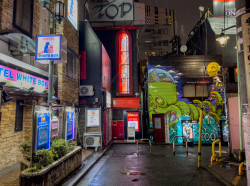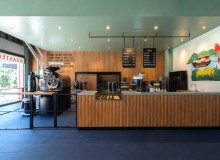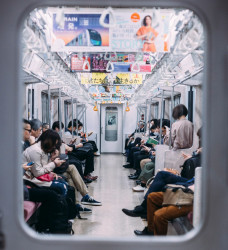
Originally published on metropolis.co.jp on December 2009

Where do you hail from, and how long have you been here?
Born in Florida, grew up in Texas and England, spent my university years on the East Coast and in Taiwan, and now I’ve been in Japan for over ten years.
What’s your background?
Academically, my focus was on Chinese, specifically Chinese history and classical literature. I regret that I’ve forgotten much of what I’ve learned…
There’s been a lot of buzz about your company’s new project, Smart.fm. In a nutshell, what is it?
Smart.fm is a tool that helps you learn, a tool that helps you never forget. It takes the hard work out of learning by tracking your progress and telling you exactly what to study and when.
What other projects has Cerego worked on in the past?
The Smart.fm site used to be called iKnow! when it was focused only on Japanese learning English. That was our main focus for over a year. Prior to that, we had a bunch of deals with business partners. Those turned out to be a little painful, so we decided to go straight to the user ourselves.
Who creates the content on Smart.fm?
Everyone! We acted as a publisher inside our own system and created Japanese content for English speakers, in addition to loads of content to help Japanese learn English. That was to get the ball rolling. But now we’ve opened up the tools for anyone to add their own content. Making these tools as simple as possible is at the top of the agenda right now.
Do you have any personal favorites among the goals on offer at the moment?
The Japanese Core 2000 is ten goals that cover the top 2,000 words in Japanese (http://smart.fm/series/3318). There’s enough there to go from bumbling gaijin idiot to slightly coherent gaijin idiot in no time.
A lot of people these days seem to worry about the internet making us more stupid, or at least more forgetful. Smart.fm aside, do you think there are other ways in which it can be used to make us cleverer?
There’re going to be teacherless classrooms, and classroomless teachers. There’re going to be web apps customized just for your learning habits and interests. There’re going to be tools that allow groups to collaborate and build knowledge in ways completely unpredicted. And all the knowledge that was formerly the domain of the privileged is going to be opened up to the whole world. In developing countries, in particular, the internet has the potential to radically change how the younger generation educates itself. And if you look hard enough, you’ll see that this is already happening. People are hacking education right now. A hack is an approach that solves a problem in a way that runs counter to conventional wisdom. How people use the web to hack education is going to be the greatest hack of the next decade.
What are you studying yourself at the moment?
Right now I’m studying the Japanese Core 2000. When I finish that and have more free time, I’m going to build my own goal for remembering all that classical Chinese I used to know.
How would you spend an ideal day in Tokyo?
The ideal day in Tokyo is one spent leaving Tokyo for the mountains. With friends. And lots of music.







